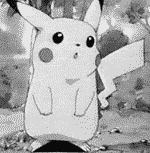NINTENDO OF AMERICA, based in Redmond, has filed suit against at least three individuals citing the new federal law banning “cybersquatting”—registering a trademarked name as a URL with hopes of selling it to the company that owns the original trademark. President Clinton signed a bill November 29 allowing offended companies to sue for control of the domain name and up to $100,000 in damages.
The Nintendo cases involve alleged infringements of a popular Pokemon character, Pikachu, as well as Donkey Kong and the star of another of Nintendo’s video games, The Legend of Zelda. Filed in the United States District Court in Seattle, these lawsuits represent what is fast becoming a trend, as companies take advantage of the new law to obtain domain names that would-be entrepreneurs have already registered.
Some legal experts see this development as another example of government colluding with big business to stamp out smaller enterprises. In theory, the new law, which snuck through Congress attached to the end of an omnibus budget bill, could have been used in the recent dispute between Amazon.com and a 29-year-old Minneapolis bookstore called Amazon, and the scorching etoy.com (the cutting-edge online art collective) vs. etoys (the well-funded e-commerce site) lawsuit.
But in practice, the anticybersquatting law primarily targets those who fall under the category of Nintendo’s would-be domain name salesmen. In three separate suits, the video game maker cites not only trademark infringement but attempts on the part of the URL owners to sell the names to Nintendo at extortionate prices.
A passage in the suit against the owner of the Pikachu.com site claims that since it was registered on January 27, 1998, “The Pikachu.com Web site initiated efforts to sell the Pikachu.com domain name to the highest bidder, and these efforts continue.”
In another lawsuit involving the DK64.com Web site, Nintendo accuses the owner, David Gentzel of Roanoke, Virginia, of seeking advertising on the site and of trying to get Nintendo to buy him out. “On June 12, 1999,” the suit reads, “Gentzel informed Nintendo by letter that he was unwilling to cease his use of, or transfer, the DK64.com domain name, unless he received $4,000 and a free copy of the Donkey Kong 64 game.”
A classic case, says Nintendo, of cybersquatting. In the early days of the Internet, the company probably would have had to part with the cash and prize to return the URL to its fold. But now, with government increasingly moving into online legislation as e-commerce leads an economic boom, the days of a totally free market in cyberspace seem numbered. It’s bad news for those who thought to register domain names before the companies owning the trademarked names did so. But it’s ultimately fair, says Stephen A. Mutkoski, an intellectual property attorney with Seattle’s Preston Gates & Ellis. “The benefit is that [the law] provides an easy way to get the real bad guys,” he says.






